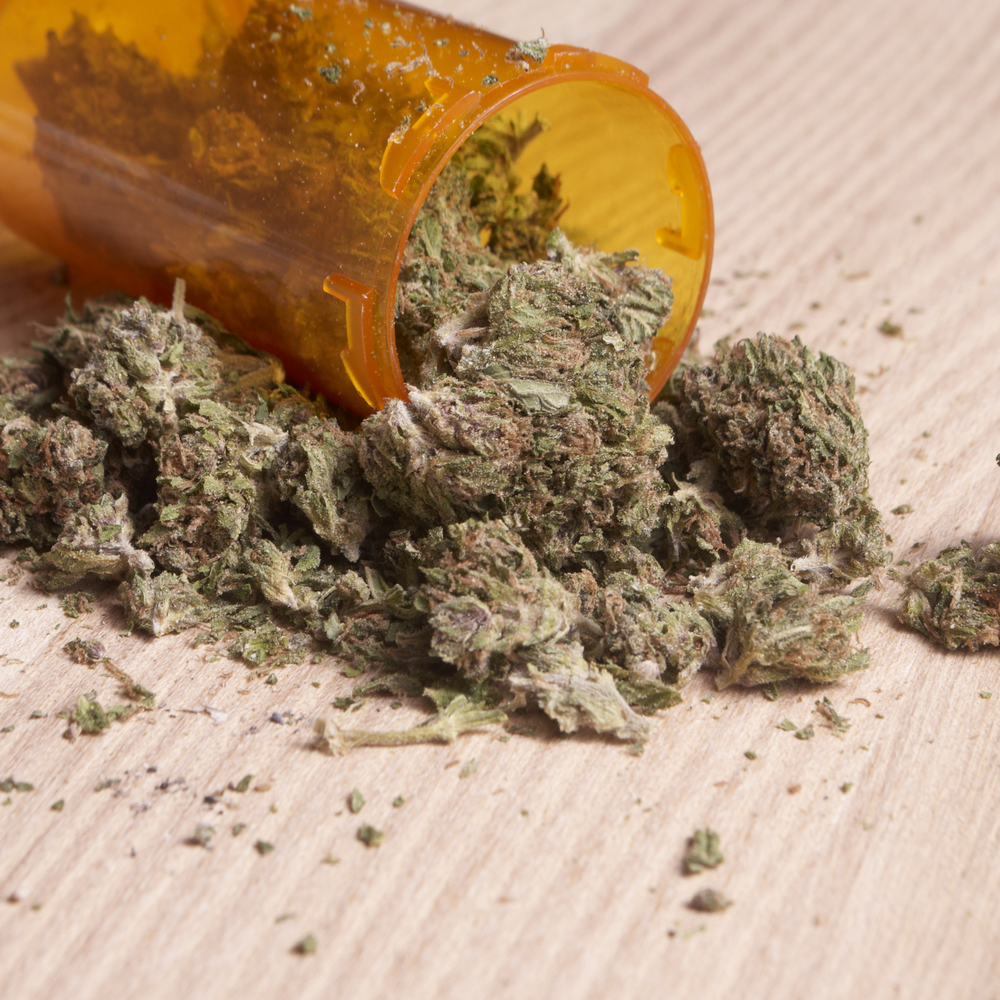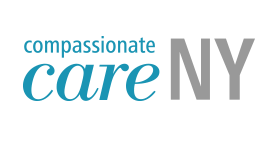Compassionate Care Center of New York Applies For for Medical Marijuana Production License
Written by |

Compassionate Care Center of New York (CCCNY), based in Newark, Wayne County, is applying to become one of five registered commercial suppliers that will be licensed in New York State to grow medical marijuana.
Licensed suppliers will serve the condition-specific palliative needs of qualifying patients with safe and accessible pharmaceutical-grade therapeutics derived from the cannabis plant.
 The CCCNY leadership team a leadership team includes world-renowned medical, regulatory and law enforcement experts, including Gastroenterologist, Dr. Larry I. Good; former Executive Vice President and Vice Chairman of CVS Corporation Jerald Politzer; former New York State prosecutor Richard W. Lerner, Esq.; leading medical cannabis PTSD researcher Dr. Suzanne Sisley; regulatory affairs expert Dr. Bruce Burnett; former Chief Security Officer of the Port Authority of New York and New Jersey Joseph Dunne; and former New York City Police Department (NYPD) Chief of Department, Philip Banks III.
The CCCNY leadership team a leadership team includes world-renowned medical, regulatory and law enforcement experts, including Gastroenterologist, Dr. Larry I. Good; former Executive Vice President and Vice Chairman of CVS Corporation Jerald Politzer; former New York State prosecutor Richard W. Lerner, Esq.; leading medical cannabis PTSD researcher Dr. Suzanne Sisley; regulatory affairs expert Dr. Bruce Burnett; former Chief Security Officer of the Port Authority of New York and New Jersey Joseph Dunne; and former New York City Police Department (NYPD) Chief of Department, Philip Banks III.
Medical marijuana advocates maintain that the suffering of persons with multiple sclerosis, cancer, HIV/AIDS, and other severe affliction is devastating for patients and their families, and that medical marijuana can alleviate the suffering and improve the life experience of many of these persons.
In July 2014, Governor Andrew M. Cuomo and the New York State Legislature enacted the Compassionate Care Act, and in accordance the New York State Department of Health (DOH) is committed to implementing a comprehensive, safe and effective medical marijuana program that meets the needs of New York state residents. The program will ensure that medical marijuana is available for certified patients with serious conditions and is dispensed and administered in a manner that protects public health and safety.
In June of 2014, the New York legislature passed legislation that will allow healthcare providers to recommend the medical use of marijuana under carefully controlled circumstances. New York’s medical marijuana law will allow healthcare providers to talk to their patients about medical marijuana as an analgesic and palliative alternative and certify those with certain serious illnesses, giving them legal access to medical marijuana.
In July 2014, Governor Andrew M. Cuomo and the New York State Legislature enacted the Compassionate Care Act. The New York State Department of Health (DOH) is committed to implementing a comprehensive, safe and effective medical marijuana program that meets the needs of New Yorkers. The program will ensure that medical marijuana is available for certified patients with serious conditions and is dispensed and administered in a manner that protects public health and safety.
The public is overwhelmingly onside with these initiatives. A 2014 Quinnipiac University poll found 88 percent of all New Yorkers approved allowing medical marijuana at the recommendation of a doctor as a good idea,with strong support across all demographic groups. A May 2013 poll by Siena Research Institute found that 82 percent of New York voters supported allowing seriously and terminally ill people to legally use marijuana for medical purposes if recommended by a doctor, including 81 percent of both Republicans and Democrats, and 89 percent of Independents.
Compassionate Care NY (CCNY), which advocated passage of the new law, is now working to ensure that New York’s medical marijuana program is implemented swiftly and effectively so that patients across the state currently suffering from serious illnesses or debilitating conditions can access the medicine they need. A sad reality noted by CCNY is that that some patients will not survive the eighteen months the law provides for full program implementation, and are urging the state to establish an interim, emergency access program for critically ill patients. The Compassionate Care NY Campaign is a project of the Drug Policy Alliance.
Under New York’s new medical marijuana law, a patient who has been certified by a healthcare provider to use medical marijuana will register with the New York State Department of Health and receive a patient identification card. Specially approved organizations such as hospitals or community health centers will dispense the medical marijuana to registered patients, under DOH supervision. In order to qualify to be part of the program, a patient must be resident of NY or is being treated in NY for a serious condition, as defined by the law for which they are seeking medical marijuana, and certified by a NY physician who has registered with DOH to recommend medical marijuana (which requires completion of a 2-4 hour training course and filed paperwork with the DOH), and under that doctors care for the condition for which applicants are seeking medical marijuana.
Successful applicants must obtain a registry identification card from the Department of Health (DOH) and carry the card at all times that they are in possession of medical marijuana.
Under the act, a serious condition is defined as: having one of the following severe debilitating or life-threatening conditions: cancer, positive status for human immunodeficiency virus or acquired immune deficiency syndrome, multiple sclerosis, amyotrophic lateral sclerosis, Parkinsons disease, damage to the nervous tissue of the spinal cord with objective neurological indication or intractable spasticity, epilepsy, inflammatory bowel disease, neuropathies, or Huntington’s disease. Also any of the following conditions where it is clinically associated with, or a complication of cachexia or wasting syndrome; severe or chronic pain; severe nausea; seizures; severe or persistent muscle spasms; or such other eligible conditions as are added by the commissioner.
Conditions that must be considered by the Commissioner for inclusion within in 18 months include Alzheimer’s disease, muscular dystrophy, dystonia, post-traumatic stress disorder (PTSD) and rheumatoid arthritis. Any other condition can be added by the Commissioner at any time.
All allowable forms (e.g., extracts, tinctures, oils, edibles) of medical marijuana, including methods of consumption and strain, variety, and strength, are determined by the Commissioner and must be approved by the Commissioner before they can be sold.
“CCCNY will serve as a vital resource for qualifying patients in New York in need of palliative care. By assembling a world-class team of cultivators, medical experts and researchers, along with New York State’s top two highest ranking police officers to retire in 2014, and the former Executive Vice President and Vice Chairman of CVS Corporation, we will be able to provide organic pharmaceutical-grade whole-plant extracts, with consistent cannabinoid profiles, at our Compassionate Care Centers throughout the State — built to function like pharmacies, but I equipped with the most state-of-the-art security available,” says Dr. Good, Chief Executive Officer of CCCNY. “By leveraging research and patient data conducted by our domestic and international partners, we will offer qualifying patients in New York State the most effective varieties of medical cannabis in the world to treat each of the 10 approved serious conditions.”
The CCCNY leadership team includes:
Chief Executive Officer Dr. Larry I. Good, M.D., F.A.C.G. is former Chief, Division of Gastroenterology, South Nassau Communities Hospital and Former CEO of Good Pharmaceuticals.
President & Chief Operating Officer Jerald Politzer is former Executive Vice President and Vice Chairman of CVS Corporation, former CEO of Loehmann’s, former President of Value City Department Stores, former Chairman and CEO with Salant Corporation, former President and CEO of G. Fox Stores, and former CEO of Filene’s Basement.
Executive Vice President Richard W. Lerner, Esq., is a former Nassau County Assistant District Attorney with more than 40 years of legal experience, and special counsel to the New York State Troopers and half a dozen other law enforcement agencies.
Chief Medical Officer Dr. Suzanne Sisley, M.D. is a global pioneer in medical cannabis research on PTSD, and Principal Investigator of the only randomized controlled trial in the world looking at the whole cannabis plant for the treatment of PTSD.
Chief Science Officer Dr. Bruce Burnett, Ph.D., is VP of Compliance, Regulatory & Medical Affairs at Entera Health, Inc., and former Director of Medical Education & Scientific /Regulatory Affairs at Primus Pharmaceuticals, Inc.
Chief Security Officer Philip Banks III is former NYPD Chief of Department and Chief of Community Affairs.
Senior Security Adviser Joseph Dunne is former Port Authority of New York and New Jersey’s Chief Security Officer.
CCCNY’s focus is its proprietary varieties of medical cannabis that carry high levels of cannabidiol (CBD), the non-psychoactive (ie: doesn’t get users high) component of the cannabis plant, which has the most medicinal benefits. Cannabinoid ratios of CCCNY’s medical cannabis varieties of are recognized by leading researchers in the industry to be the best products on the market for alleviating symptoms across a range of serious conditions, including Crohn’s disease, cancer, Parkinson disease, multiple sclerosis and epilepsy. One of the varieties of medical cannabis which CCCNY holds the exclusive license to in New York State is Haleigh’s Hope, a variety of medical cannabis that has been instrumental in treating pediatric epilepsy.
Haleigh’s Hope contains among the highest levels of CBD in the vast range of marijuana strains, while still maintaining an extremely low, but therapeutic, level of tetrahydrocannabinol (THC), and is thus incapable of producing a “high”. Cannabidiol, or CBD, doesn’t cause a high and, when mixed with an oil, is widely acclaimed by users as a potential therapy for hard-to-treat forms of epilepsy.
 Dr. Orrin Devinsky, a researcher, Professor of Neurology, Neurosurgery and Psychiatry, and Director of New York University’s Langone Comprehensive Epilepsy Center, a level 4 epilepsy treatment facility and among the largest epilepsy treatment programs in the United States, has done a safety study on the use of an extract of cannabidiol. Results are reported in a 2014 article published the journal Epilepsia, entitled “The case for assessing cannabidiol in epilepsy” (Wiley Periodicals, Inc. 2014 International League Against Epilepsy Issue, Epilepsia Volume 55, Issue 6, pages 787790, June 2014 DOI: 10.1111/epi.12635), coauthored by Dr. Devinsky with colleagues Maria Roberta Cilio of the Departments of Neurology and Pediatrics at the University of California San Francisco, California and Elizabeth A. Thiele of the Departments of Neurology and Pediatrics at Massachusetts General Hospital, Harvard Medical School, Boston. The work was funded by
Dr. Orrin Devinsky, a researcher, Professor of Neurology, Neurosurgery and Psychiatry, and Director of New York University’s Langone Comprehensive Epilepsy Center, a level 4 epilepsy treatment facility and among the largest epilepsy treatment programs in the United States, has done a safety study on the use of an extract of cannabidiol. Results are reported in a 2014 article published the journal Epilepsia, entitled “The case for assessing cannabidiol in epilepsy” (Wiley Periodicals, Inc. 2014 International League Against Epilepsy Issue, Epilepsia Volume 55, Issue 6, pages 787790, June 2014 DOI: 10.1111/epi.12635), coauthored by Dr. Devinsky with colleagues Maria Roberta Cilio of the Departments of Neurology and Pediatrics at the University of California San Francisco, California and Elizabeth A. Thiele of the Departments of Neurology and Pediatrics at Massachusetts General Hospital, Harvard Medical School, Boston. The work was funded by
GW Pharmaceuticals
The coauthors note that intractable epilepsies have an extraordinary impact on cognitive and behavioral function and quality of life, and treatment of epileptic seizures represents a challenge and a unique opportunity.
They observe that over the past several years, considerable attention has been focused on cannabidiol (CBD), the major nonpsychotropic compound of some 80-odd cannabinoids found in the Cannabis sativa herb. The researchers note that other research studies have provided a strong base of evidence for the safety and anticonvulsant properties of CBD. However, the lack of pure, pharmacologically active compounds and legal restrictions have prevented clinical research and confined data on efficacy and safety to anecdotal reports.
Consequently, they maintain that pure CBD appears to be an ideal candidate among the many phytocannabinoids as a therapy for treatment-resistant epilepsy, and a first step in that direction is to systematically investigate the safety, pharmacokinetics, and interactions of CBD with other antiepileptic drugs and to obtain an initial signal regarding efficacy at different dosages. These data can then be used to plan double-blinded placebo-controlled efficacy trials.
A PowerPoint slide summarizing the Epilepsia article is available for download in the Supporting Information section.
Dr. Devinsky’s epilepsy research interests include surgical therapy, cannabinoids and other medications to manage epilepsy, tuberous sclerosis, sudden death in epilepsy, Dravet syndrome, quality-of-life concerns, and cognitive and behavioral issues in epilepsy. He has published widely on epilepsy and behavioral neurology, including more than 350 articles and chapters, and more than 20 books and monographs. He has chaired several committees for the American Epilepsy Society and has served as a board member. He is active in the American Academy of Neurology and the Epilepsy Foundation. Dr. Devinsky helped found two neurology journals, as well as Epilepsy.com and the Epilepsy Therapy Project, and serves as a reviewer for more than 30 journals, and gave a presentation on his medical marijuana research at the American Academy of Neurology (AAN) 2015 meeting in Washington, D.C.
Recently, the American Academy of Neurology (AAN) undertook a systematic review of the medical literature to help doctors and patients understand if medical marijuana works –and works safely — for treating certain neurologic conditions. Their conclusions are summarized in a Neurology Now article here.
Meanwhile, other states are also moving ahead with medical marijuana authorization.
Gov. Nathan Deal of Georgia last month signed the Haleigh’s Hope Act a bill to amend Chapter 34 of Title 43 of the Official Code of Georgia Annotated, relating to physicians, acupuncture, physician assistants, cancer and glaucoma treatment, respiratory care, clinical perfusionists, and orthotics and prosthetics practice, so as to change certain provisions relating to the use of marijuana for treatment of cancer and glaucoma; to provide for regulated medicinal use of cannabis and derivatives thereof to treat certain conditions; to provide for related matters; to repeal conflicting laws; and for other purposes.
The Haleigh’s Hope Act will legalize low-THC cannabis oil for certain “medication-resistant epilepsies,” while creating an infrastructure, registration process and research program for the drug. The eponymous Haleigh is Haleigh Cox, a little girl from Georgia who had been suffering hundreds of seizures a day. After moving to Colorado Springs, Colorado, where both medical and recreational marijuana is legal, Haleigh’s mother started her on a regimen of Haleigh’s Hope cannabis oil, and reported in a March 2014 interview that Haleigh was thriving, healthy, and happy, and the family was “absolutely shocked” at the transformation.
On Tuesday, May 19, 2015, Texas lawmakers passed the Texas Compassionate Use Act that gives Texans with intractable epilepsy hope for more successful seizure treatment. The Texas House of Representatives passed the bill legalizing Cannabidiol Oil in a 108-38 vote. The Texas Senate had previously passed the bill in a vote of 26-5.
The bill enacted by the Legislature of the State of Texas relates to the medical use of low-THC cannabis and the regulation of related organizations and individuals; requiring a dispensing organization to obtain a license to dispense low-THC cannabis and any employee of a dispensing organization to obtain a registration.


